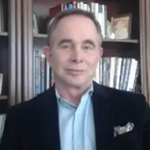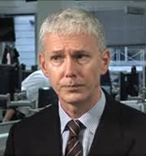
Special Guest: Jeff Berwick
Jeff Berwick, based in Acapulco, Mexico, has formerly been interviewed in this series (https://www.youtube.com/watch?v=O20n_oDUx54 ). He founded the StockHouse Media Corporation in 1994 and was its CEO until 2002. He is publisher of the dollar vigilante website (https://www.dollarvigilante.com/ ), which went online in 2010. Back then, he predicted the complete collapse of the US Dollar and the world financial system within the next five to ten years. He thinks that we are a lot closer now. He recently predicted a massive breakdown for September 2015 based on the seven year “Shemitah cycle“ (http://surviveshemitah.com/ ).
Jeff is concerned about the dependence of governments and financial market institutions on extremely low interest rates, even negative interest rates, which he calls “complete Keynesian insanity”. What is happening in Greece right now is just the beginning. It will eventually happen in other eurozone countries like Spain, Portugal, Italy, France and in countries all around the world, including the US.
Government debt in most countries has become so high that minor increases in the interest rate would lead to immediate default. The explicit US debt is above $18.3 trillion, as shown in the figure below. This however does not include implicit debt and liabilities that the US government has accumulated over the years, for example in the form of social security. Total debt and liabilities according to Jeff amount to $95 trillion.
“All it takes is, for example, for the Federal Reserve to raise interest rates by .25 per cent and they can bankrupt the entire financial system. This is where we are now. It’s been complete insanity. They tried to fix the 2008 crisis by printing money and going into more debt, which is why they got into that problem in the first place. And we are starting to see the next wave of major collapses and crises.”
As a response to the ongoing war on cash, Jeff suggests to go out of large cash holdings as soon as possible. He sees one potential solution in BitGold and even more so in Bitcoin, as a completely decentralized money and payment system. The price of bitcoin has been rising during the recent Greek crisis, whereas gold and silver have fallen. However, Jeff points out that the prices for gold and silver are systematically distorted on a “very manipulated market.”
“There is no Bitcoin office, there is no BItcoin servers. So no matter what the government does, unless they turn off the internet entirely, they can’t stop Bitcoin. That’s the beauty of Bitcoin.”
Jeff also recommends the internationalization of assets as a hedge against oppressive interventions by individual countries (suggested links:http://tdvwealthmanagement.com/ and http://tdvoffshore.com/ ).
Although Mexico is often portrayed as a dangerous third world country, Jeff can tell from personal experience that it is in many respects a better place than the US, as there is far less government involvement in private and business affairs. Mexico will nonetheless face serious problems, because of their close economic ties to the US. The collapse of the American economy will inevitably spill over to Mexico.
“But I think people here [in Mexico] are more used to it. So, for example, they had their peso collapse in the 90s and people lived through it. But Americans aren’t ready for what’s coming. They haven’t seen it in their lifetime. And as you know, half the people in the US are on government assistance now, and a lot of those are on welfare and food stamps. When those EBT cards get shut down, I wouldn’t want to be anywhere near any major population center in the US.”
Jeff generally sees potential in other Latin and South American countries like Columbia, Chile and even Nicaragua, as well as some Asian countries, but definitely not in North America, Europe, Japan or Australia, which all share the same problem: the biggest cohorts of their populations looking for unsustainable entitlement payments in the near future.




 07/17/2015 - Jeff Berwick talks Crypto-Currencies
07/17/2015 - Jeff Berwick talks Crypto-Currencies




















































